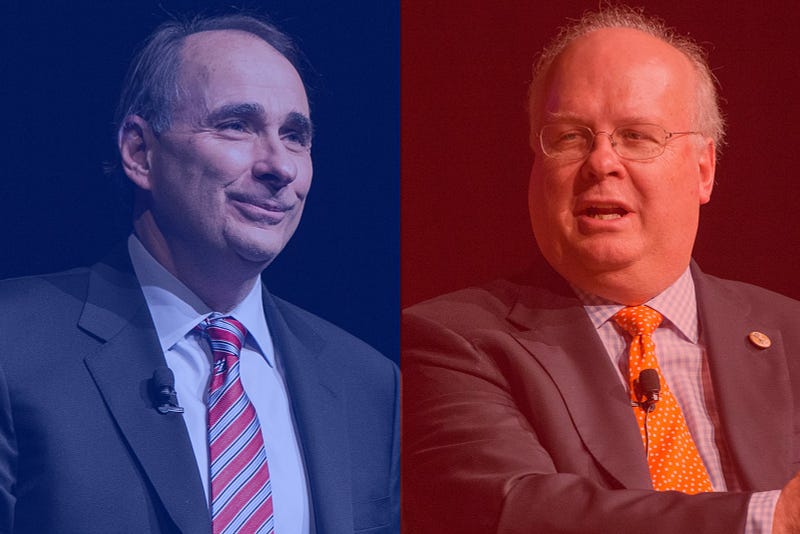
Photos courtesy of LBJ Library, Illustration by Charles Dunst ’18
In one campus-wide email, President Wippman touched on the fissures generated by the current political climate, stressing the need for community-wide dialogue through the form of the “Common Ground” Initiative. This program intends to bring speakers of opposing viewpoints together into a moderated discussion, attempting to create some kind of common understanding among both speakers and audience members.
This program, which will be spearheaded by the College Events and Scheduling Office, has received special funding as a pilot-program. The first installment of this series, slated for October 18, will bring together Republican Karl Rove and Democrat David Axelrod in a dialogue moderated by Susan Page of
USA Today
. Both Rove and Axelrod are political advisors and analysts, in addition to being bestselling authors and columnists. Rove served as former Deputy Chief of Staff and Senior Advisor to President George W. Bush, while Axelrod functioned as Chief Strategist for President Obama’s presidential campaigns, in addition to filling the position of Senior Advisor to the President.
This event has a projected turnout of 3,000 attendees, and due to its size, will be held in the fieldhouse. A similar event will follow in the spring. Based on the success of this pilot program, the administration may create an endowment to make Common Ground a continuing series. Students who have suggestions for future speakers may contact Lisa Magnarelli.
Although bringing together speakers from divergent sides of the political spectrum, the Common Ground series is not meant to generate debate, but rather respectful conversation. President Wippman hopes for the speakers to “genuinely…engage with each other’s views, and…acknowledge weaknesses in their own positions and strengths in opposing positions.” While not suggesting that “all views are equally valid,” a main purpose of these talks is teaching students to concede the legitimacy of their peers’ political perspectives, especially when they are different from their own. According to President Wippman, these talks will model the kind of “respectful dialogue across political boundaries that should occur not just on college campuses, but in the broader society as well.” While such discussions already exist on campus, this program is intended to “complement” and “extend” them.
The topics of these discussions are expected to be polarizing, which makes maintaining respectful communication all the more crucial. President Wippman acknowledges that “we [the administration] expect that the topics to be covered in each program will vary with the expertise and interests of the speakers and with what is happening in the world at the time of the program.” He predicts, however, that certain topics such as race, religion, immigration, climate change, health care, free trade, tax reform, free speech and terrorism will likely
be on the agenda.
No matter how heated debate becomes, it is important to recognize that such tensions are crucial to challenging the extant paradigms students hold, and should therefore be viewed as educational opportunities. Although uncomfortable, this friction will challenge students to “confront new ideas and consider other perspectives” and to push beyond intellectual complacency. While acknowledging that sensitive issues need to be addressed with a certain delicacy, President Wippman holds that “we [the community] should not see respectful dialogue…as in conflict with the goal of…fostering a supportive campus environment for all of our students.”
Ultimately, the Common Ground Initiative is intended to bring healing and clarity to the community in the wake of unprecedented and daunting political events and rhetoric.
“It’s hard not to view recent events with alarm. But how we move forward is up to us,” writes President Wippman; as such he reminds students that, rather than being passive, they should recognize that they have the ability to ameliorate the current situation through the discourses they choose to generate. Above all, students must learn to respond in an intelligent, informed, and empathetic manner to their opponents, no matter how provoked they may feel; this level of maturity will be crucial in enabling different political factions to work with — rather than against — one another.
